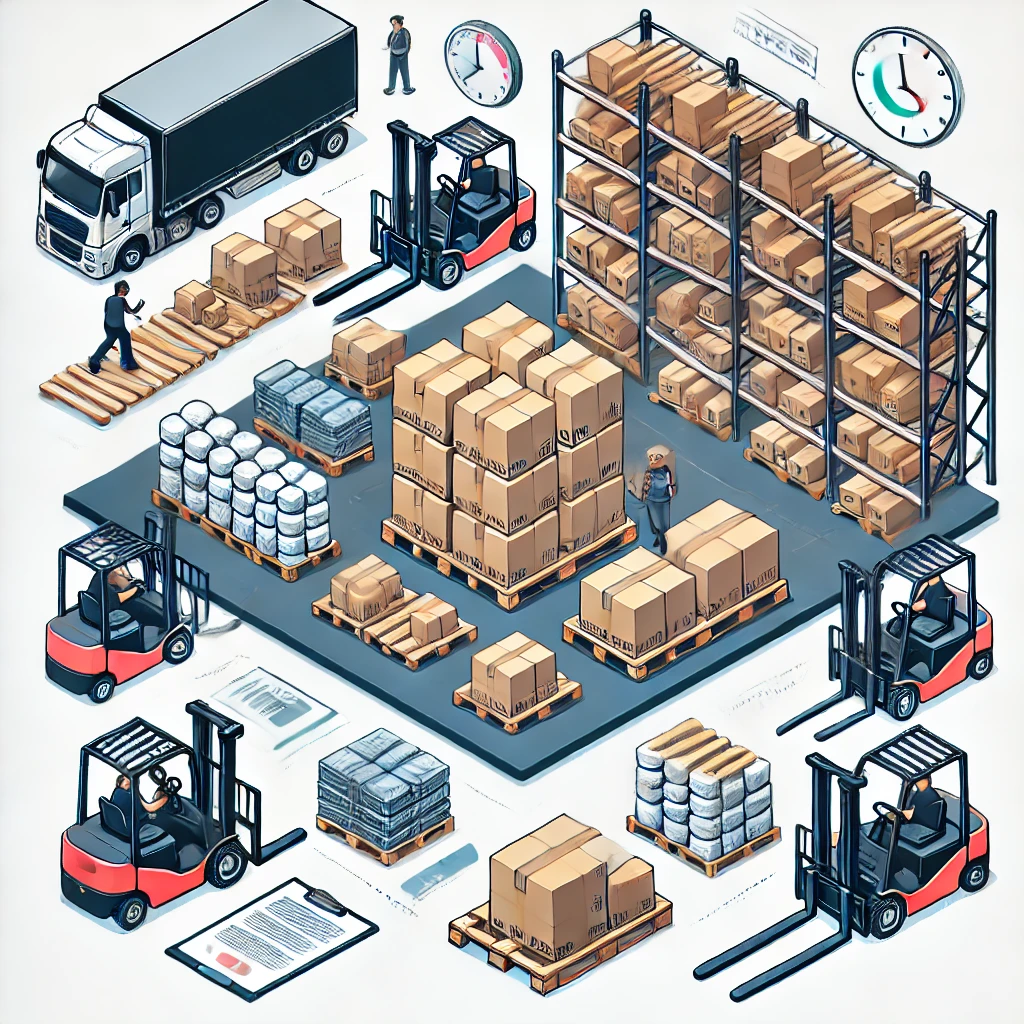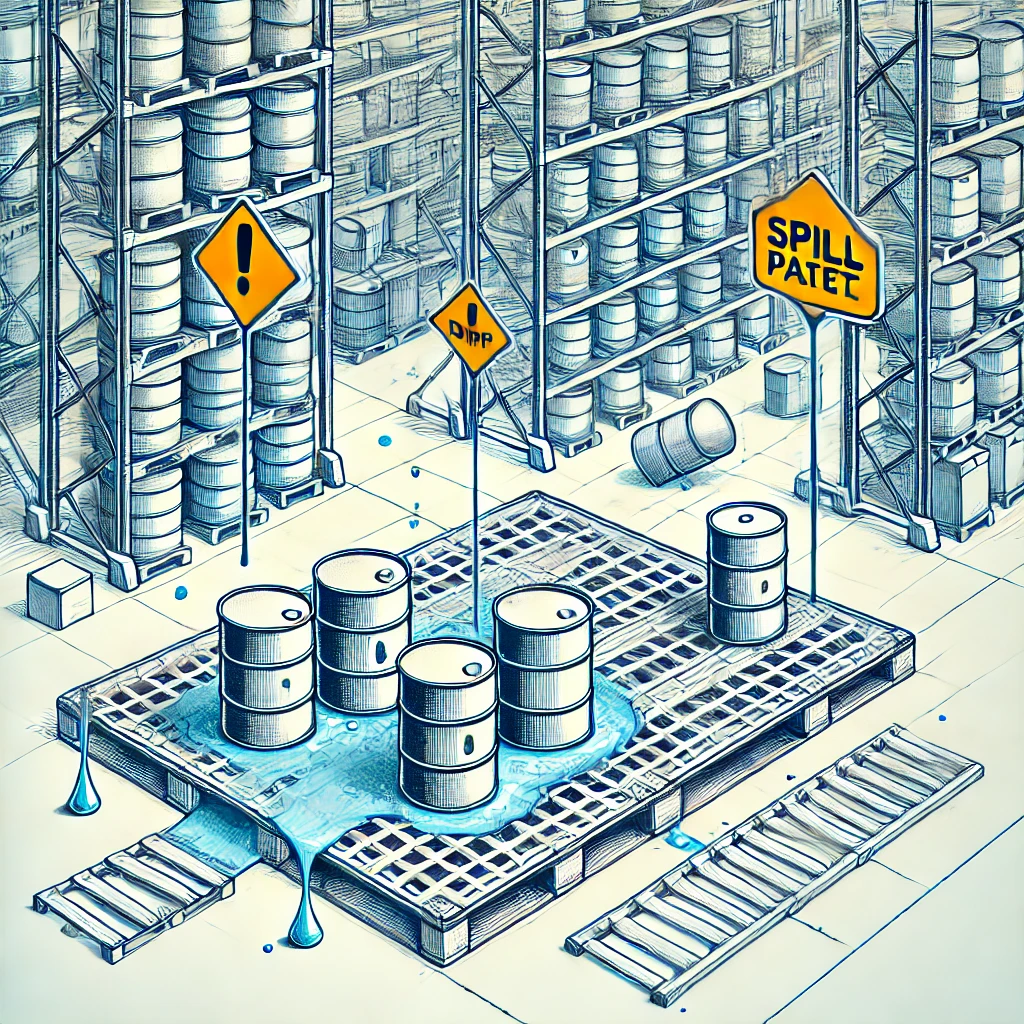Pallets in Warehouse Management: Definitions, Types, and Best Practices

What is a Pallet? Defining the Backbone of Warehouse Operations
At its core, a pallet is a flat transport structure that supports goods in a stable fashion while being lifted by a forklift, pallet jack, front loader, work saver, or other jacking device. But in the context of warehouse management, a pallet is much more than just a platform.
Meaning of Pallet in Logistics
In logistics, a pallet serves as:
- A Unit Load Builder: Pallets allow individual items to be bundled into a single unit for easier handling and transport.
- A Space Optimizer: Standardized pallet sizes enable efficient use of warehouse and truck space.
- A Protection Mechanism: Pallets help protect goods from damage during storage and transit.
- An Efficiency Booster: Palletized goods can be moved quickly and easily with mechanical equipment, saving time and labor.
Types of Pallets
Understanding the different types of pallets is crucial for optimizing warehouse operations. Here are some common pallet types:
- Wood Pallets: The most common type, known for their durability and cost-effectiveness.
- Plastic Pallets: Lightweight and resistant to moisture and chemicals.
- Metal Pallets: Extremely durable and often used for heavy loads or in specialized industries.
- Paper Pallets: Lightweight and recyclable, often used for air freight.
- Spill Pallets: Designed to contain leaks and spills from drums or containers.
Focus on Spill Pallets
Spill pallets deserve special attention due to their unique role in warehouse safety:
- Definition: A spill pallet is a containment system designed to catch leaks, drips, and spills from drums or containers storing liquids.
- Usage: Commonly used for storing hazardous materials, oils, and chemicals.
- Benefits:
- Prevents environmental contamination
- Complies with regulations for hazardous material storage
- Enhances workplace safety
Pallet Terminology: Understanding the Lingo
To navigate the world of pallets effectively, it’s important to understand key terms:
- Pallet Jack: A tool used to lift and move pallets.
- Pallet Rack: A storage system designed to store palletized materials in horizontal rows with multiple levels.
- Palletization: The process of placing goods on a pallet for storage or shipping.
- Depalletizing: The process of removing goods from a pallet.
- Pallet Flow Rack: A high-density storage system where pallets move by gravity.
Palleting Meaning
Palleting, or palletizing, refers to the process of stacking and securing items on a pallet for storage or shipping. This process is crucial for:
- Efficient space utilization
- Easy handling with forklifts and pallet jacks
- Protection of goods during transit
- Streamlined loading and unloading processes
Best Practices for Pallet Management in Warehouses
Effective pallet management can significantly enhance warehouse efficiency. Here are some best practices:
- Standardize Pallet Sizes: Use consistent pallet sizes to optimize storage and handling processes.
- Implement a Pallet Tracking System: Use barcodes or RFID tags to track pallets throughout the supply chain.
- Regular Inspection and Maintenance: Regularly check pallets for damage and repair or replace as needed.
- Proper Stacking Techniques: Train staff on correct stacking methods to ensure stability and safety.
- Optimize Pallet Flow: Design warehouse layout to minimize pallet movement distances.
- Consider Pallet Pooling: For some operations, renting pallets through a pooling service can be more cost-effective than owning.
The Role of Pallets in Warehouse Automation
As warehouses become increasingly automated, pallets continue to play a crucial role:
- Automated Storage and Retrieval Systems (AS/RS): These systems rely on standardized pallets for efficient operation.
- Robotic Palletizers: Advanced robots can build pallet loads with precision and speed.
- Automated Guided Vehicles (AGVs): Many AGVs are designed to transport pallets autonomously within a warehouse.
Environmental Considerations in Pallet Usage
As sustainability becomes a greater focus in logistics, pallet choices can have significant environmental impacts:
- Recyclable Materials: Many pallets, especially those made of wood or plastic, can be recycled at the end of their life.
- Reusable Pallets: Durable pallets that can be used multiple times reduce waste.
- Pallet Repair: Implementing a pallet repair program can extend the life of pallets and reduce waste.
- Alternative Materials: Exploring eco-friendly pallet materials like recycled plastic or sustainable wood sources.

Pallet Safety and Regulations
Proper pallet usage is crucial for warehouse safety:
- Weight Limits: Adhere to specified weight limits for different pallet types.
- Stacking Height: Follow guidelines for safe stacking heights to prevent toppling.
- ISPM 15: For international shipping, wooden pallets must comply with ISPM 15 regulations to prevent the spread of pests.
- Chemical Storage: When using pallets for chemical storage, ensure compatibility between the pallet material and the stored chemicals.
The Future of Pallets in Warehouse Management
As technology and sustainability concerns shape the future of logistics, pallets are evolving too:
- Smart Pallets: Integration of IoT sensors for real-time tracking and monitoring.
- Lightweight, Strong Materials: Development of new materials that are both durable and lightweight.
- Custom-Fit Pallets: 3D printing technology enabling the creation of pallets customized for specific products.
- Biodegradable Pallets: Increasing use of environmentally friendly, biodegradable materials.

How Linbis Helps Improve Organic Search Positions
Linbis, as a leader in logistics software solutions, plays a crucial role in optimizing pallet management and improving organic search positions for warehouses. Here’s how:
- Comprehensive Content Strategy: Linbis creates in-depth, SEO-optimized content on pallet management and related logistics topics, helping businesses rank higher for relevant keywords.
- Industry Expertise: By sharing expert insights on pallet usage and warehouse management, Linbis establishes authority in the field, improving search rankings.
- User-Centric Design: Linbis’s software solutions incorporate SEO best practices, ensuring that warehouse websites using their tools are easily discoverable by search engines.
- Regular Content Updates: Linbis consistently refreshes its content to reflect the latest trends and innovations in pallet management and logistics, helping maintain relevance in search results.
- Data-Driven Insights: By providing warehouses with valuable analytics and performance data related to pallet operations, Linbis enables the creation of unique, data-rich content that search engines favor.
- Mobile Optimization: Linbis ensures that all content and tools related to pallet management are mobile-friendly, a crucial factor in search engine rankings.
- Localized Content: For businesses operating in multiple regions, Linbis helps create localized content about pallet management, improving search visibility in specific geographic areas.
In conclusion, pallets are far more than simple platforms for storing goods – they are a fundamental component of efficient warehouse management. By understanding the various types of pallets, implementing best practices in pallet management, and leveraging advanced solutions like those provided by Linbis, businesses can significantly improve their operational efficiency, reduce costs, and stay competitive in the ever-evolving world of logistics. As we move towards a more automated and sustainable future, the humble pallet continues to play a crucial role in shaping the warehouses of tomorrow.
